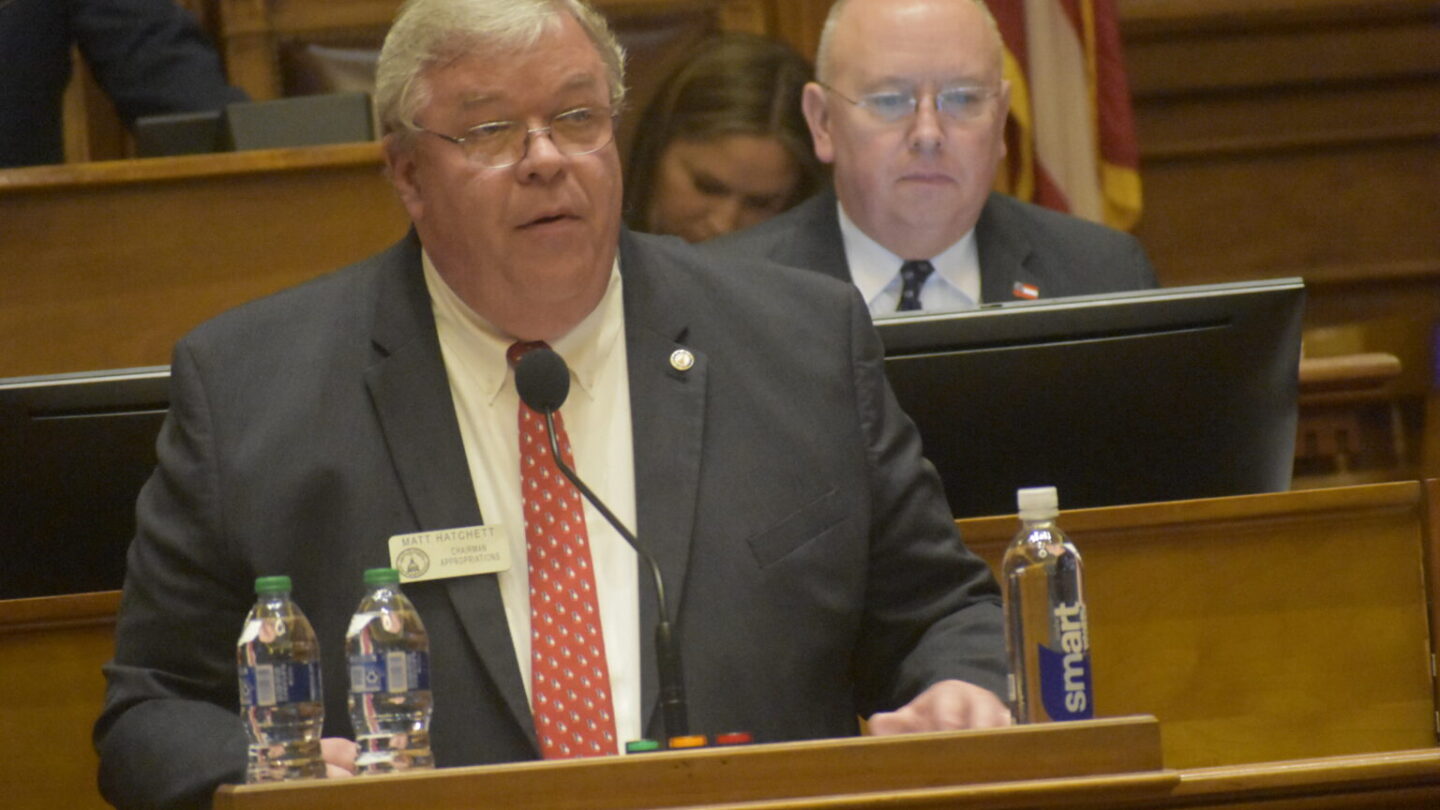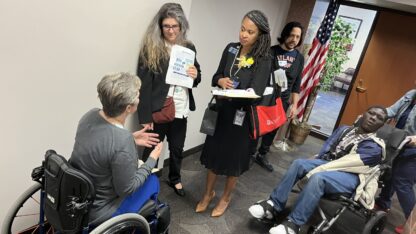Georgia House set to vote on $32.5B 2024 spending plan, adding millions for law enforcement

House lawmakers are set to vote Thursday on a spending plan for next year that includes additional salary bumps for hard-to-fill state jobs and more money for law enforcement and behavioral health services.
The proposed $32.5 billion budget cleared the committee hurdle Wednesday and is scheduled to go before the full chamber Thursday. From there, it will go to the Senate, where lawmakers will get a crack at their own changes. The 2023 session ends later this month.
“Our work is not done. We know that there’s some priorities that need additional funding, specifically in behavioral health and law enforcement,” said Rep. Matt Hatchett, a Dublin Republican who chairs the House Appropriations Committee.
State revenues have been growing in Georgia, but that is expected to slow, leaving budget writers in a cautious posture heading into the new fiscal year that starts in July. The governor also sets the total spending limit, which means lawmakers can only move money around in the budget.
“We looked at many needs and unfortunately, we can’t fill them all. But I look forward to working with the governor and the Senate on other possibilities to get them funded,” Hatchett said.
Lawmakers have set aside $1.3 million for a Georgia State Patrol satellite post in Buckhead, where a push to secede from the city of Atlanta was rejected last week in the state Senate after the Kemp administration cast doubts on the constitutionality of the cityhood proposal.
“On all levels in Georgia, we’re demonstrating we will not tolerate crime or street gangs,” Gov. Brian Kemp said in a statement announcing the new location.
Lawmakers have also added another $2,000 pay raise for law enforcement – on top of Kemp’s proposed $2,000 increase for officers and other state workers – and another $2.7 million for a new cold case specialty unit within the Georgia Bureau of Investigation. The GBI is also set to receive another $1.5 million to increase staffing in its forensic science service division to clear a backlog in processing evidence like toxicology, as well as $2.5 million to hire sexual assault nurse examiners at the 28 centers across the state.
House budget writers also included significant funding boosts for the state Department of Behavioral Health and Developmental Disabilities, increasing spending on crisis beds and spending an extra $10.1 million to lift the pay for workers at state psychiatric hospitals.
An additional $1.9 million will go toward a housing program required under the federal settlement agreement, and another $2.3 million was reallocated to ramp up services needed to support the rollout of 9-8-8, the national suicide prevention hotline.
The new version of the budget also now includes funding for a total of 375 more people with disabilities to receive services through a Medicaid program at a cost of about $8 million. That’s up 125 slots from the governor’s budget proposal, but a far cry from the 2,400 recommended by a bipartisan Senate study panel last year.
“Very respectfully, I want you to know that 2,400 was the number asked for. That would cost $66 million. At this point, we’re going to continue to work on it with this addition of ($8 million),” said Rep. Katie Dempsey, a Rome Republican who chairs the subcommittee overseeing this section of the budget.
Efforts to clear the 7,000-person waiting list for services have been complicated by a workforce shortage among caregivers who assist people with disabilities.
A review of the pay rates for these workers has shown it would cost the state about $91 million to increase worker pay to $15.18, up from $10.63 – which providers argue still comes up short of what is needed to compete with fast-food chains and retailers.
That rate study is still in the works on the state level and will then need federal approval. In the meantime, lawmakers have created a line in the budget for the funding needed to increase those wages, but no money has been set aside just yet.
“We also acknowledge the need to fund the provider rate study and look forward to working with the governor and the Senate to develop a plan and funding for implementation,” Hatchett said.
Some other notable changes:
About $1.4 million would be used to offer dental care to adults through Medicaid. Today, only emergency dental services are provided.
The state Department of Agriculture would receive about $550,000 for two compliance specialist positions, equipment and vehicles to step up enforcement of the state’s soil amendment rules. Local officials and residents in northeast Georgia say sludge is being passed off as a soil amendment, making life unbearable in some rural communities.
The governor’s proposal to fund public Hope scholarships at 100% has been dialed back to 95% in the House proposal. That allowed lawmakers to increase Hope scholarships for students attending private institutions, Hatchett said.
This story was provided by WABE content partner Georgia Recorder.








